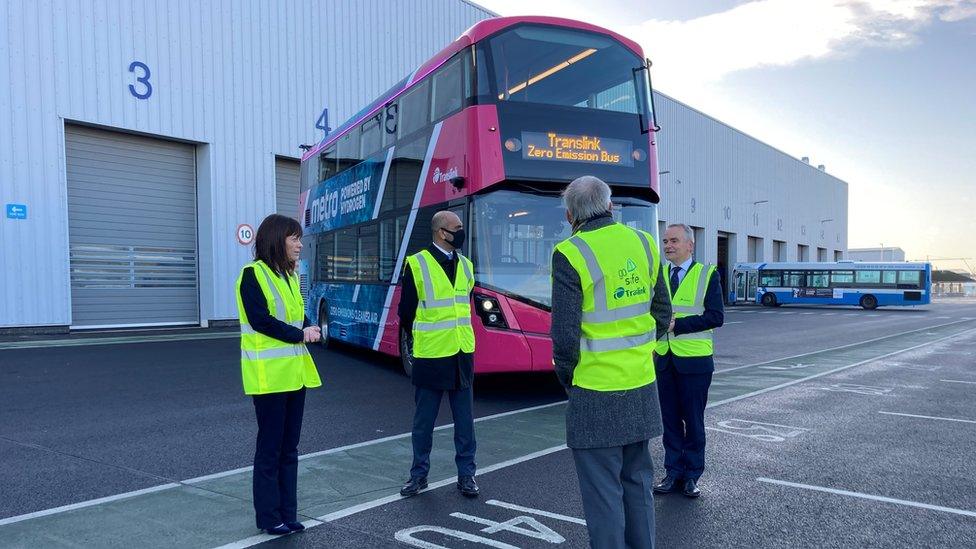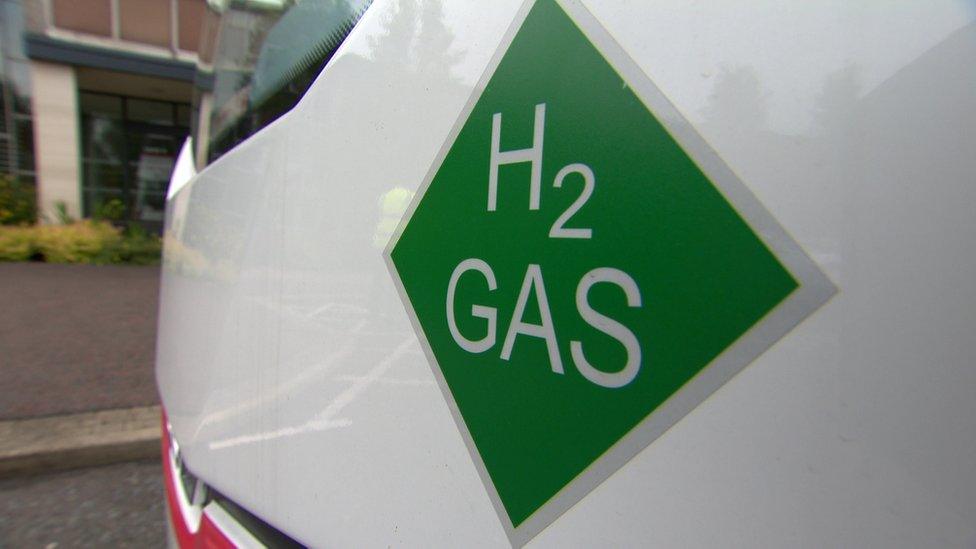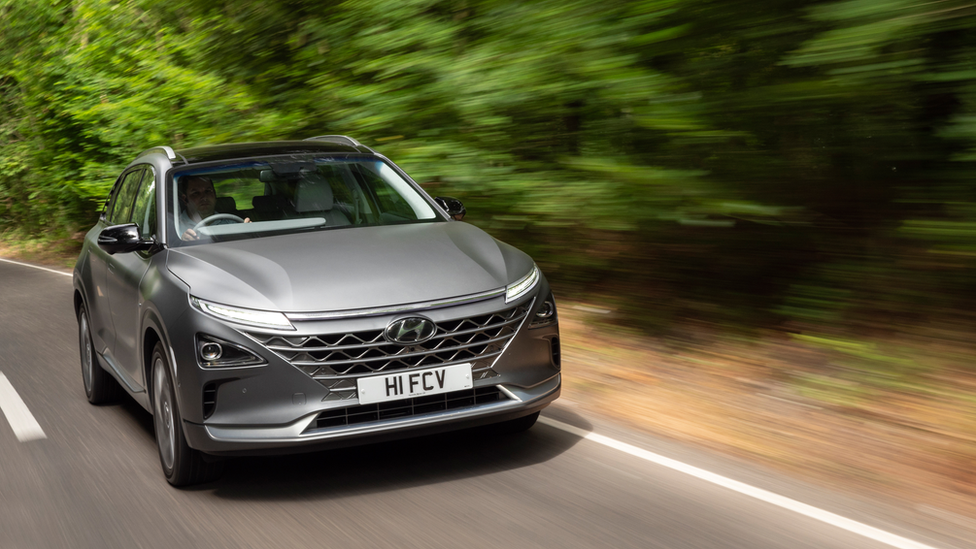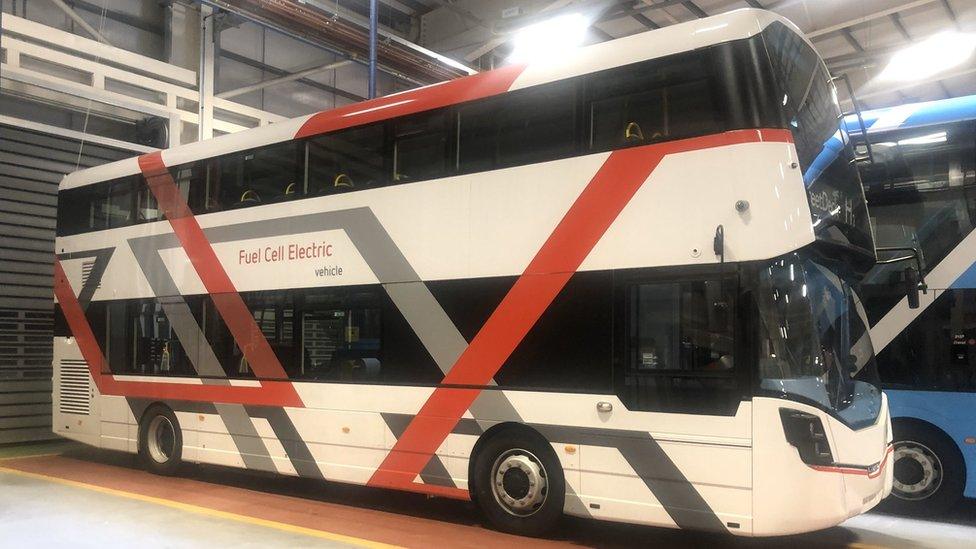Northern Ireland set to get 100 zero-emission buses
- Published
- comments

Minister for Infrastructure Nichola Mallon and Translink staff with one of the new hydrogen-powered buses
Northern Ireland is set to get 100 zero-emission buses, which will come into service over the next two years.
Twenty of them will be hydrogen powered and the other 80 will be battery operated.
The hydrogen-powered buses have no exhaust fumes and emit only water from the tailpipe.
These new buses are due to go into service in Belfast and Londonderry when they are ready and will be built by Ballymena-based company Wrightbus.
They will be paid for with £50m from the New Decade, New Approach deal, external, which restored the Stormont institutions in January.

Analysis: Hydrogen fuelling stations on the horizon?

Hydrogen makes up just part of this order. But it's attracting a lot of interest.
At £500,000 each, a hydrogen bus is twice as expensive as a diesel equivalent.
Wrightbus said it would take government sales to drive volume and reduce the cost.
That has begun to happen. The other big challenge is fuel.
Wrightbus owner Jo Bamford's other company Ryse Hydrogen has plans.
It wants to build several hydrogen fuelling stations here to service demand.

A further £16m will be spent on 45 low-emission buses which will serve Ulsterbus routes.
Infrastructure Minister Nichola Mallon said it was part of an ambitious vision for low-emission public transport.
"Cleaner, greener, sustainable transport is key to protecting our environment and fighting the climate crisis," she said.
Translink chief executive Chris Conway said it wanted to have a zero-emission fleet by 2040.
Wrightbus is already building three hydrogen-powered buses for Translink.
They will enter service in the coming weeks.
The hydrogen fuel will come from splitting water into hydrogen and oxygen using electricity from a County Antrim wind farm.
- Published15 July 2020

- Published1 July 2020

- Published29 January 2020
